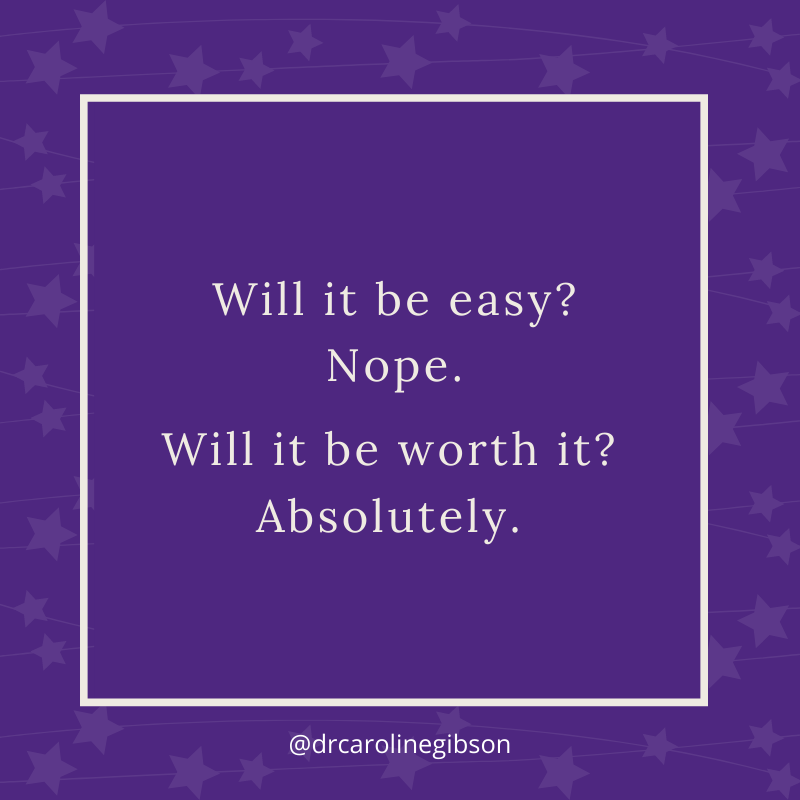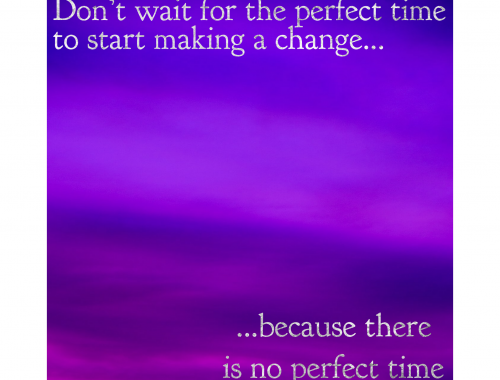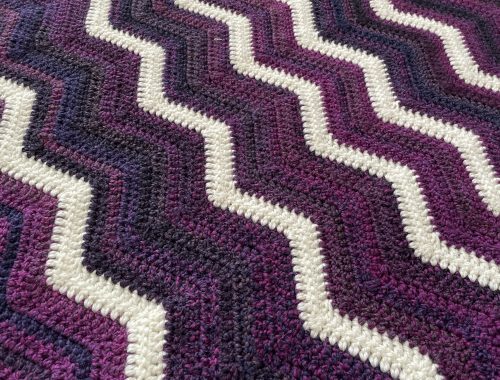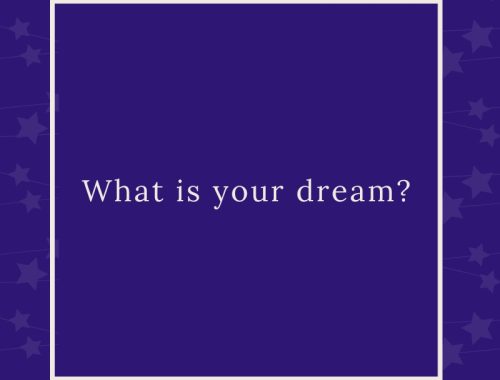
Will it be easy? Nope
Will it be worth it? Absolutely.
I saw this on a sign on a bridge over the road at a point somewhere along the route as I was doing the great north run on Sunday. It has stuck with me. By mile 9 is definitely was not easy, and by mile 10 onwards it was just a case of keeping putting one foot in front of the other, one step at a time.
2days later it is still not easy: I am still aching, getting up and down stairs is a bit of a challenge, and I have a stubborn blister that won’t settle. (This is not a whinge, I completely own that it is almost entirely self-inflicted by a lack of training!).
But was it worth it? Yes, absolutely! The sense of accomplishment in achieving a goal is a truly well-earned pleasure. We also get the dopamine and endorphin hit from the physical activity itself, and yet more happy hormones from the sense of community and connection with our fellow runners and the uplift from all the cheering supporters.
Changes are always hard because of how our brains work
I was reflecting back on this today, and it occurred to me that we could put this sign on almost any aspect of lifestyle medicine. Changing our habits is never easy. We can think of our brains as having two thinking parts – the logical rational ‘human’ brain (the real you), and our primitive instinctive reactive brain (the one that is just interested in keeping us safe and alive, fed and watered and keeping the species surviving).
Our brains are creatures of habit, our primitive brains like to stick to what they know and what is familiar. Familiar habits are tried and tested, and our primitive brain interprets familiar as safe.
Our logical intelligent brain knows that some things that are good for us need work and patience. But our primitive brain wants the easy fix, the instant reward.
That little voice in our heads wants us to stay the same
For example, if we are trying to stick to a healthy diet, our logical human brain knows that following our plan, taking time to make or buy nutritious foods is good for us overall and we will feel better in the longer term. But our primitive brain doesn’t care about the logic, it just shouts in your mind “eat the biscuit”. The primitive brain is all about the instant reward in the moment, but it doesn’t realise that this sacrifices the longer-term gains.
Exercise is just the same. Our logical brain knows it is good for us, that we will get fitter, that we will feel good afterwards and all the other reasons for why being active is great. But with each step, each ounce of effort, the primitive brain sees us using up our precious energy and it goes into self-preservation mode. It is that little voice in our heads as we run “this is hard’, ‘this hurts’, ‘I’d rather be sat on the sofa’. The harder we work and the more we push ourselves, the louder that voice becomes. The nearer we get to the limits of what we can do, the more the primitive brain’s protective instinct kicks in and it gets louder and more insistent telling us ‘stop now…no really, it’s time to stop… go on, just have a little rest… you don’t have to do this… you’ve done enough… really, please stop now!!… etc…’.
Moving out of your comfort zone.
Pushing to, and beyond, the limits of what we can do is never easy, because we have evolved to survive and we have brilliant incredible brains that are designed to protect us. But to keep fit and healthy in our modern world we need to push ourselves out of our comfort zone. We need to get out and move, to resist the temptations such as the easily available high-energy foods which are freely available in western society. However, our primitive brain hasn’t caught up with 21st century living, it just sees the warmth and food and shelter, and wants to stay there. In order to get fit and live healthily our logical human brain needs to win the internal fight with our primitive brain, so it can keep pushing us out of our comfort zone. Will it be easy? Nope. Will it be worth it? Absolutely.
When you want to make changes, getting the right help and support makes it easier – get in touch to arrange a free discovery call to see how working with me can support you, alternatively find out more at www.wellbeingdoctor.net and start your journey to be your best self.




